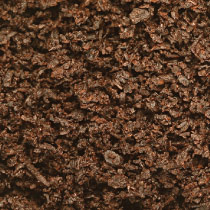Quitting Chewing Tobacco
The Great American Spit-out — Quitting “Dip”
Dear Doctor,
I've been chewing tobacco since high school. Now at 22, I'm still playing and chewing. My dentist recently noticed precancerous skin changes in my mouth. I want to quit, but part of me still thinks it's cool. Help!

Dear Eric,
Trying to quit chewing tobacco can be particularly difficult, but it is certainly not impossible. Chewing tobacco tends to be the forgotten addiction in our society. Most tobacco support groups, treatments, and medications are marketed for smokers. For example, most people are familiar with the “Great American Smoke-out.” However, ask someone about the “Great American Spit-out” or “Through with Chew Week,” and you are likely to get a confused look. Hang in there! Cigarettes, cigars, and chewing tobacco come from the same plant and cause the same addiction — nicotine dependence.
So how do you quit “dip” in a world that only sees smoke? Given the lethality of this addiction, I would rather my patients take an aggressive approach than waste time sampling only one method at a time.
It sounds like you have started at the right place — with your healthcare provider. Behind every successful athlete, including those who quit “dipping,” is a good coach. Even though most tobacco (smoking) cessation programs were specifically designed for smoking, they are all aimed at treating nicotine dependence, and there is certainly evidence that they are helpful with chewing tobacco as well.

Nicotine replacement treatments such as nicotine gum, lozenges and patches have been shown to be helpful. There is also some evidence that the prescription smoking cessation medication Zyban (GlaxoSmithKline) may be helpful. The newest smoking medication, Chantix (Pfizer), is also showing great promise with nicotine addiction, but has not been tested in those who use chewing tobacco. However, smoking and chewing tobacco are both a dependence/addiction to nicotine and activate the same parts of your brain. Chantix is a non-nicotine medication that “plugs” the nicotine receptors in your brain, simultaneously reducing withdrawal symptoms and preventing slips from “feeling good”. Your dentist or doctor will be able to determine if Chantix or any other medication is appropriate for your situation.
As for the “cool factor” with chewing tobacco use, it's actually not cool at all — read on. Many guys are not aware of some of the immediate consequences that will instantly remove this belief; there is research indicating that you are twice as likely to have erectile dysfunction — how cool is that? Nicotine immediately decreases sexual arousal and the ability to attain an erection, even in young healthy men. Is the “cool factor” of dipping worth decreased performance in the bedroom? And that's in addition to what most people already know, that smoking tobacco causes cancer, stroke, and heart disease, to say nothing of bad breath, mouth dryness and dental problems. To boot, your dentist has already told you that you have early pre-cancerous skin changes.
Chewing tobacco tends to be the forgotten addiction in our society.
The best approach — build and discuss your quit-plan with a health professional. Remember, even over-the-counter medications can have side effects and can be dangerous with certain medical conditions. With that said, I recommend the “shotgun approach.” Do everything you possibly can — all possible treatments at the same time — to help you quit tobacco. Rather than trying one method, slipping, and then switching to a different method, surround every aspect of your life with quitting.
- Check with your doctor about the appropriateness of prescription medication and nicotine replacement therapy.
- Get a free telephone tobacco counselor.
- Try using herbal dip (non-nicotine), as there is some evidence that this can be a helpful addition to the primary treatment.
- Use regular chewing gum (non-nicotine), as it has also been shown to help alleviate nicotine withdrawal symptoms. You will find that you will use quite a bit of gum while quitting, so make sure to use gum containing Xylitol — it will help keep your mouth moist, your breath fresh, and importantly, reduce the potential to get tooth decay.
- Go to a regular tobacco cessation support group.
- See a psychologist or counselor for assistance in quitting.
Not all of these methods are needed to successfully quit. There isn't one method that works for all people.
Talk to any person who has recovered from nicotine addiction and you will learn that part of success is dealing with relapse. It's about perception — if you think of the relapse as “failure,” then you are likely to keep using. If you realize a slip is part of the recovery process, you are well on your way to being tobacco-free.



